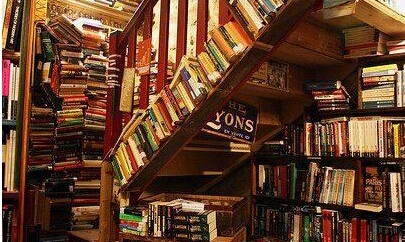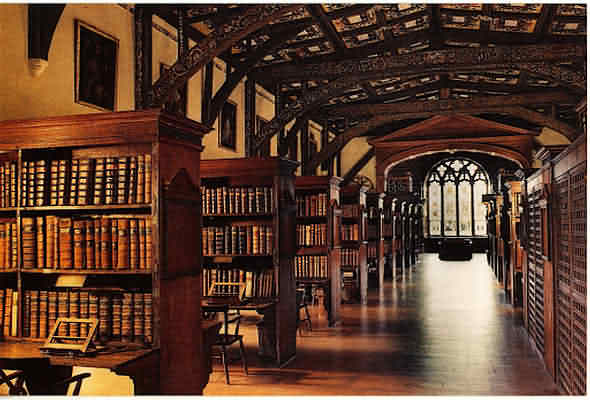
Auguste Reading to Her Daughter, Mary Cassatt - 1910, public domain
Bibliophile: noun 1. a person who loves or collects books, especially as examples of fine or unusual printing, binding, or the like. That would be a pretty good definition of myself and most of my friends and I would expand the definition a little further and say, I just like owning books and having my book shelves filled with them. My family has threatened me with intervention on more than one occasion, not seriously, but they do tease me on occasion. Before you judge me, my home does not look like this, just so we're clear. I have them neatly organized by subject. Ok, yes, I do have some books in every room except the kitchen but they are tidy and neat and the majority are in our study. I thought I would write on behalf of my fellow bibliophiles so that their families can try to understand this desire, need, obsession with keeping the books we read.

When my youngest child was in the first grade her school had a speaker come and talk to all the parents at an assembly, it was called, 'Raise A Reader'. He was quite inspiring and we all were given a bag with a free book for our children and a flashlight. Why the flashlight? The speaker asked us if we had ever hid under our covers at night to read a book long after our parents had told us to turn out the light and go to sleep. Guilty. I raised my hand. I had done this and I knew several friends who had. He believed that we as parents should encourage this in our own children, after he had assured us that our children wouldn't go blind- he had checked with a doctor. His theory was that we should be encouraging our children to read as much as possible. He also believed that we should be reading out loud to kids, even after they could read themselves because it was a way to bond with them and create a love of reading. Send them to bed with a flashlight and if they promise to read for half an hour they can stay up half an hour later, what kid doesn't want to stay up later? Win-win.

Bodleian Library, Oxford, England
My parents were readers and as a kid I remember that they always had books on their nightstand. Ordering from the Scholastic book club was a fun event for me and I also read a lot as a child. During those moments growing up that we don't get the attention, activities or friendships we need or are enduring boring family events, car drives and long summer vacations, books can be a companion. They can be an escape or a flight into other possible worlds. How many kids have fantasized about going to Hogwarts? I sure did. This is the heart of the matter- any place, any time with no equipment we can quietly escape to a new world, new universe, walk in someone else's shoes, fight with Atilla the Hun, walk the moors with Heathcliff, anything is possible in a book. "Ok," you say, "I get that. I love reading too but it doesn't explain why my family member, friend, acquaintance keeps a ton of books around."
Reading is enjoyable, it's necessary to get along in the world, it's a sign of a civilized country if it's citizens can read and I think we can all agree that access to books and reading is a valuable and important asset to humans, but why do some people collect them and even hoard them? Because seeing the books are a visual reminder of all these things. Books are knowledge and imagination in one place, easily accessible in a bundle you can hold in your hand. You can reuse and re-read them over again. Of course there are many electronic devices that can do the same thing and more. While it is convenient and easily portable it does not have the same emotional effect. It is the physical aspect of paper and print that is attractive and desirable. For a bibliophile a book has texture and smell that are appealing. Again, the questions arises, "Why keep the books? Why not donate them and purchase a new book?" Because it is more than that.

Woman Reading. Portrait of Sofia Kramskaya by Ivan Nikolayevich Kramskoy, 1866. The State Tretyakov Gallery, Public Domain
When I look at the wall of shelves lining my study I am looking at a wealth of knowledge, a plethora of imaginations, varied worlds and experiences and events that I have visited in my mind, a collection that is uniquely my own. No other library has all of the same ingredients. It gives me pleasure to discuss a book with someone and be able to pick it off my shelf and hand it to the person as a gift. "Here take this book, I enjoyed it and I hope you do too." I don't expect it to be returned. I can't do that with my e-reader. Books on e-readers are impersonal. I also make small pencil notes in a book, when I read a used book that also has notes I am sharing a personal connection with someone. I don't keep every book I have ever read, just the ones that I really liked. If it is on my shelves it is because I want to refer to it again or I hope to be able to give it to the right person. It is because I enjoy looking at the shelves of books as one looks at a sculpture or artwork. Think of it as a case of trophies or a display cabinet of treasures a traveler has brought home from trips- moments of an event or experience. That is why I choose to keep books that affected me in some way, these are reminders of a time and place that has meaning. There is a difference between hoarding and collecting, a collector cares for their possession and stores and displays them in safe place free from dust, dirt, water or damage. A bibliophile knows without looking what is in the collection. You can glean a lot of information viewing someone's library. "Oh, you like Sci-Fi I see, have you ever read......?" A bibliophile enjoys sharing what they have read equally as much as reading. The image of a solitarity reader is only part of the picture because the reader also wants to share the passion and enjoyment of reading.
Ask your friend about their book collection, it will be an enjoyable experience for you both.

Comments